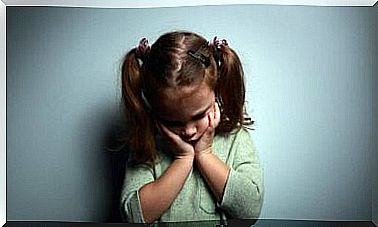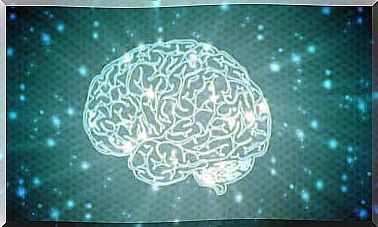Childhood Trauma And Depression In Adults
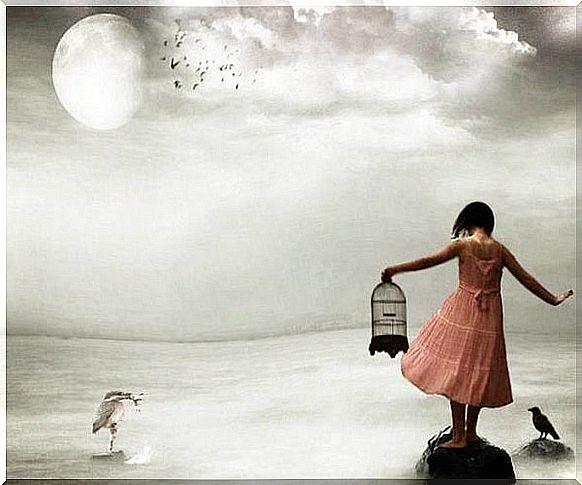
There is no phase so intense, and at the same time so beautiful and vulnerable, as childhood. These early experiences will ultimately determine to a large extent not only our lives, but also the way we see this life.
The bond we have with our caregivers, our parents, who guide us, care for us and love us, provides us with the pillars of our development so that we can grow up safely and become autonomous adults.
But if something goes wrong, if there is violence or misfortune in our lives, that crosses our youth, it will leave lasting traces.
This is a fact – a reality. And for a child, a creature who is not yet able to defend itself or fully understand why evil or tragedy exists, this is extremely difficult and hard to digest.
This stress in the early stages of life, as a result of physical or emotional trauma, will have a major impact on the child’s development.
The wound will always remain in our brain. The intense stress and suffering creates an injury that, by the time we reach adulthood, puts us at greater risk of developing certain types of depression.
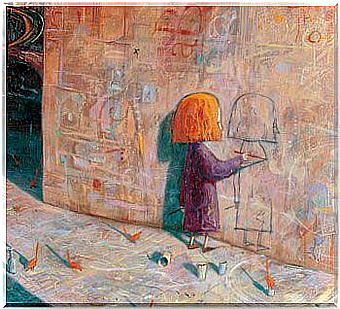
A lack of affection during childhood is one of the main causes of depression
This does not only apply to the most unfortunate and extreme cases such as abuse or assault. Often enough, children who grow up without family ties, or with parents who didn’t know, or didn’t want to, how to strengthen the vital bonds with their children, experience a lot of shortcomings during adulthood.
A healthy, happy and complete childhood ensures that the child grows up knowing that he is loved and that he can count on the unconditional and unique support of his family in every step he takes, in every decision and every failure.
The development of his self-esteem will go hand in hand with the affection he receives. The child will have a positive self-image because it will be a reflection of what he has discovered so far.
But if the child is instead confronted with emptiness, scorn, and disapproval, his life will not only be with uncertainty, but to some extent with resentment and mistrust.
If the people who should have supported him and offered unconditional love just ignored and mistreated him, then it will be difficult for him to build healthy relationships with others. He becomes suspicious and anxious.
How do you overcome a difficult childhood?
Psychiatrists speak of ‘biological vulnerability’. That is, all these traumatic or negative past experiences become entrenched in our experience and in our brains.
Severe stress changes and shapes our deepest structures, all of which makes us more vulnerable. It makes us more likely to develop feelings of depression in adulthood.
Does this mean that anyone who has experienced trauma during childhood will necessarily become depressed? No, not that. Everyone experiences their traumatic past in their own way. Some people may see these past events as a reason to fight every day.
Something that they take in, accept and confront so that life will offer them a new chance, and the opportunity to be happy again.
But for others, the traumatic experiences will be too heavy a burden to bear. After all, this isn’t just about dealing with a lingering memory, it can also affect the way they relate to the world.
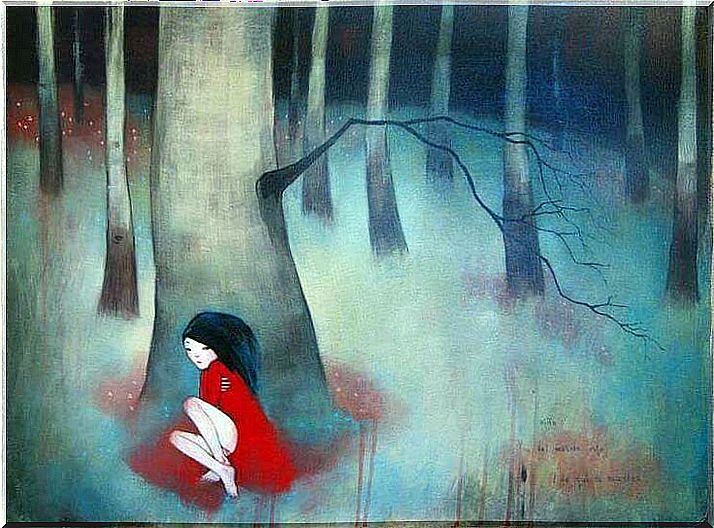
Perhaps they have lost faith in themselves and everything around them. They may experience difficulties when it comes to maintaining friendships and even relationships. They may long for affection but are unable to allow it for fear of being betrayed or hurt.
All of this can imply a certain type of chronic anxiety, hypersensitivity and emotional vulnerability that will have to be fought every day. Achieving happiness in these cases is an extremely difficult task. How can we deal with this? Through effort, willpower and lots of social support.
Now that we are aware of the facts, all we need to remember is how incredibly important it is to continue to protect children. Never think that a child is some kind of miniature adult.
A child craves positive emotions, it needs experiences full of unconditional love, words and attachment. A child is not an adult who is able to understand why other adults mistreat him, nor is he able to protect himself. The experiences that the child goes through during the early years of his life will be part of him forever. Never forget this.
Always take care of your little ones, and if you yourself had a difficult childhood, remember that everyone can find happiness, and that what you have been through is worth accepting, overcoming and transforming into a new life .
Images Courtesy of Lucy Campbell







